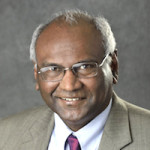A Brief Colonial History Of Ceylon(SriLanka)
Sri Lanka: One Island Two Nations
A Brief Colonial History Of Ceylon(SriLanka)
Sri Lanka: One Island Two Nations
(Full Story)
Search This Blog
Back to 500BC.
==========================
Thiranjala Weerasinghe sj.- One Island Two Nations
?????????????????????????????????????????????????Tuesday, February 28, 2017
Essays Of A Lifetime By Professor Carlo Fonseka

By S. Ratnajeevan H. Hoole –February 28, 2017
There was a time when science was just one endeavor among many for the
great scientists of the world. For example, Isaac Newton was a true
polymath – a celebrated master of astronomy, chemistry, mathematics,
physics and theology1. Another polymath was Charles Lutwidge
Dodgson, more popularly known by his pen name Lewis Carroll. He was an
Oxford mathematician, Anglican theologian, musician, author, publisher
and political scientist to whom is attributed the electoral system of
proportional representation which is presently the subject of raging
debates in Sri Lanka and a matter of personal interest to me as I labour
at the Election Commission in Sri Lanka.
Science now, however, is so specialized with small incremental advances
that there are few polymaths today. Carlo Fonseka (MBBS (First Class),
University of Ceylon; Ph D, University of Edinburgh; Emeritus Professor
of Physiology at the University of Ceylon (now Colombo)) is exception –
engaging in medicine, management of public bodies, theology, music,
left-wing politics and many other things, and bringing these to the
public through op-ed pieces, and radio and television talk shows.

‘Essays Of A Lifetime‘ By Professor Carlo Fonseka – Publisher: S. Godage & Brothers (Private) Ltd (2016)
The book under review consists of a collected volume of Fonseka’s
selected writings and speeches over a lifetime on diverse topics such as
medicine, science, philosophy and ethics, religion, economics,
politics, education, the arts, the biographies he has written and his
travel experiences. The selection has 34 essays written between 1971 and
2014. Of particular note is the first chapter, appropriately titled ‘To
err was fatal’1, wherein his honesty Fonseka details the five deaths he
attributes to his erroneous interventions, where it is clear that he is
being too hard on himself. Recent studies in the US showing that
‘iatrogentic damage (defined as a state of ill-health or adverse effect
resulting from medical treatment) is the third leading cause of death in
the US, after heart disease and cancer’2 prove Fonseka to be the incorrigible iconoclast he is for speaking of truths that other doctors are not comfortable with.
The book has been positively reviewed before3 as is natural
for one from a much-loved public personality. I do not wish to detail
the book and take away the thrills of reading it. What I will focus on
is Fonseka the man. For that is relevant to understanding what he writes
and benefit from the lessons his life offers to us.
Fonseka graduated in medicine from the University of Ceylon and earned
his doctorate from the University of Edinburgh. His doctoral work on how
the pituitary gland puts out growth hormones has become the stuff of
textbooks. Two of his papers have each been cited over 100 times.
Greatness in life involves the ability to communicate. Almost all great
men evince this truth. Most successful men in Sri Lanka are no
exceptions and products of the church and her schools which gave them
their skills. To cite one striking example, S.W.R.D. Bandaranaike was a
product of Anglican education. Most public spokesmen of the LTTE were
Tamil Christians although for its membership the LTTE was rarely able to
draw from Christians.
Likewise, Fonseka is a complete product of the Roman Catholic Church and
her St Joseph’s College, Colombo. His versatility with the English
language is such that I have met a doctor who a generation later
preserves his handwritten notes on physiology that he took down as
Fonseka lectured, as a monumental work of literature. Around the year
2004, we shared the same office while being members of the University
Grants Commission of Sri Lanka and, in the absence of his secretary, I
had the pleasure as his friend of typing his articles as he dictated.
They were always perfect on the first go. (Unfortunately, the privileges
of high-up government service had then prevented him from learning the
computer. It now appears that he has become computerate, though not to
the degree that he is literate.)

